Keeping the Home Dry With a Dehumidifier
Spring is a wonderful time of year. As the weather changes from cold and dreary to pleasant, it means that summer is around the corner. But spring also brings rain, which brings moisture. And too much moisture in the home can be a terrible thing. Not only can too much humidity make it downright uncomfortable in a home or building, but it can also worsen allergies, cause mold growth, and damage parts of the home.
Luckily, the right dehumidifier can make quick work of this, allowing homeowners to stay comfortable and avoid some nasty humidity-related issues. Read on to find out how to pick the right dehumidifier.
What Does a Dehumidifier Do To Prevent Mold?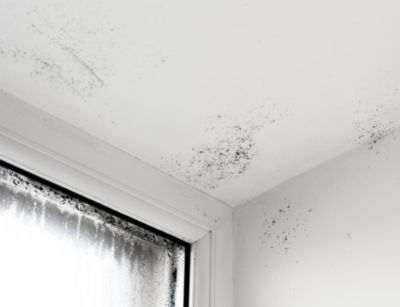
Having a dehumidifier is the best way to ensure that mold doesn’t grow in the house. Mold needs moisture to grow, so when a dehumidifier is allowed to work, it removes that necessary factor of mold growth. This helps protect those in the home with allergies while keeping the interior comfortable even when it’s raining cats and dogs outside.
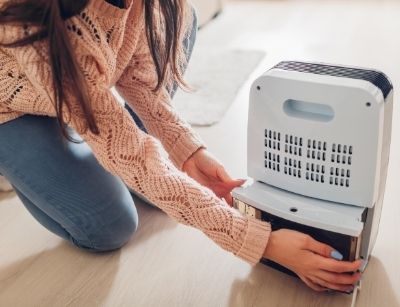
Kinds of Dehumidifiers
The two main kinds of dehumidifiers are portable and whole-home. Portable dehumidifiers are ideal for removing moisture from just one room at a time. They’re great for those rooms where the home’s AC just doesn’t seem to cut it and needs a little help. Or for those who only have cause for using one on occasion.
Whole-home dehumidifiers are another story altogether. They require professional installation and effectively remove moisture from the entire house, provided it’s the right size. Whole-home dehumidifiers are generally more energy-efficient than portable models. They’re also quieter and are generally installed out of sight in the basement or attic, so it doesn’t take up space in the home.
Which Is the Best Choice?
Deciding which kind of dehumidifier to use can be fairly easy. The big question is how much space needs the humidity removed and how often. A smaller space, like an apartment, can get by with a portable model. This is also ideal because those renting an apartment don’t want to invest money to install a whole-home system.
However, those in small, medium, or large family homes who want to protect their walls and their household members should consider a whole-home dehumidifier. They have a higher up-front cost, but they tend to pay for themselves pretty quickly by preventing mold and keeping the walls from developing moisture damage. Those still unsure about which dehumidifier is best should talk to their local HVAC experts for more information.
About G.F. Bowman, Inc.
G.F. Bowman, Inc. has been serving Cleona and Lebanon, PA, since 1967. Their trusted staff members are all about delivering honest, quality service and long-term solutions. Their focus is always on customer satisfaction and excellent workmanship. Contact them to learn more about whole-house dehumidifier installation today!
Distribution Links +
- lifestyle.us983.com
- panhandle.newschannelnebraska.com
- metro.newschannelnebraska.com
- lifestyle.1045thedan.com
- wboc.com
- rfdtv.com
- htv10.tv
- central.newschannelnebraska.com
- southeast.newschannelnebraska.com
- midplains.newschannelnebraska.com
- northeast.newschannelnebraska.com
- plattevalley.newschannelnebraska.com
- rivercountry.newschannelnebraska.com
- wrde.com
- wpgxfox28.com
- lifestyle.mykmlk.com
- wtnzfox43.com
- lifestyle.3wzfm.com
- lifestyle.bigtalkerradio.com
- lifestyle.rewindmymusic.com
- lifestyle.koltcountry.com
- lifestyle.967thewolf.net
- lifestyle.southernsportstoday.com
- lifestyle.thepodcastpark.com
- lifestyle.680thefan.com
- lifestyle.xtra1063.com
- lifestyle.953hlf.com
- lifestyle.rewind1019.com
- lifestyle.countrylegends1059.com
- lifestyle.967wshv.com



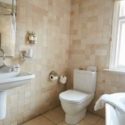
 While both residential and commercial toilets appear to be similar, there are key differences that are important to learn. Residential toilets are installed with the correct setup to connect to city sewer piping. They are created to handle a smaller volume of water and waste and function using a suction system to flush.
While both residential and commercial toilets appear to be similar, there are key differences that are important to learn. Residential toilets are installed with the correct setup to connect to city sewer piping. They are created to handle a smaller volume of water and waste and function using a suction system to flush.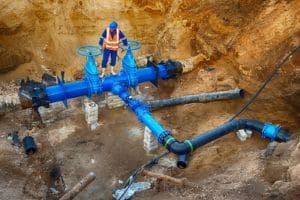
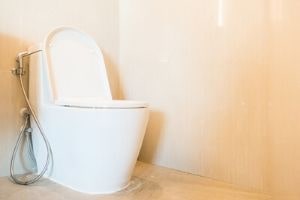 If you want the tankless feature of a commercial toilet but live in a residential area, you aren’t out of luck. The good news for you is that there are tankless toilets designed especially for houses. Tankless toilets function as their name implies, without a toilet tank.
If you want the tankless feature of a commercial toilet but live in a residential area, you aren’t out of luck. The good news for you is that there are tankless toilets designed especially for houses. Tankless toilets function as their name implies, without a toilet tank.

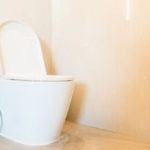

 1..
1..
 2..
2..
 3..
3..
 4..
4..
 5..
5..
 6..
6..